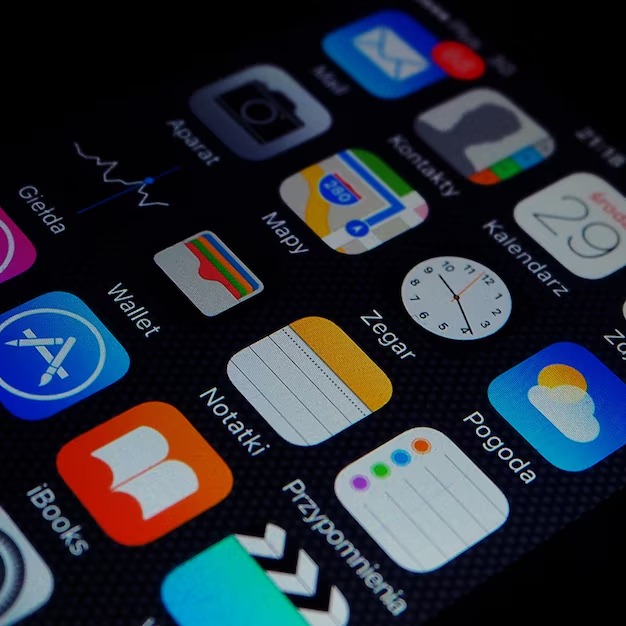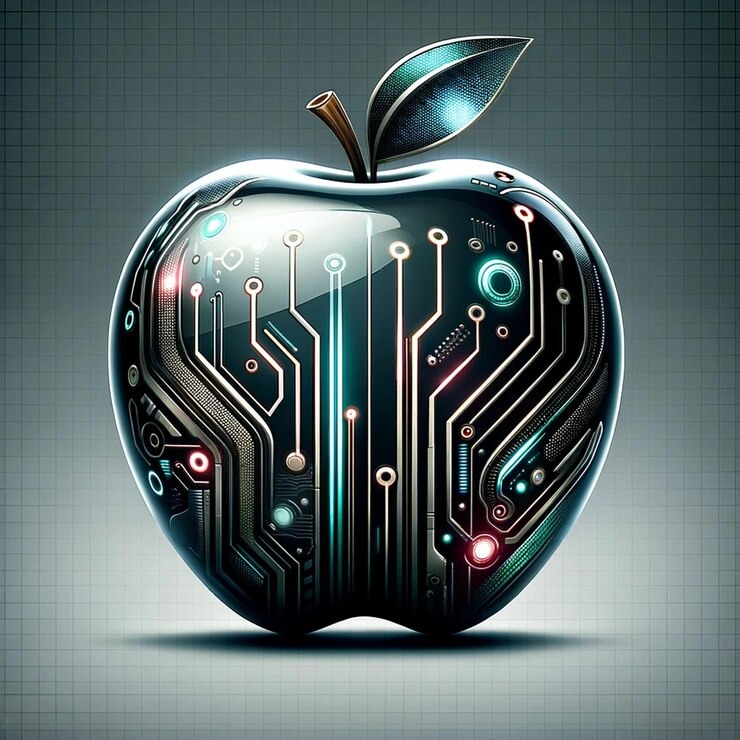Apple has always tried to make itself more than a technology company, but a driver of culture. Apple Intelligence in iOS isn’t merely the company trying to join the AI train; it is trying to change the way people use iPhones. The timing matters: the AI competition between such giants as Google or Samsung is gaining pace, and Apple must prove it can offer a solution that is both innovative and reliable.
“When Apple moves, the world doesn’t just notice—it adapts,” notes one industry analyst.
What is unique about this launch is that, Apple is not marketing AI as a buzzword. It is not really positioning it as a stand-alone and stressing it as a natural extension of iOS, which is seamlessly integrated into our everyday usage: in messages, productivity, and personalization. This is the kind of approach that may make what otherwise feels like tech hype to other people an effectively beneficial upgrade to those who are iPhone users.
Key Features of Apple Intelligence in iOS
Apple has also announced over 20 new features based on artificial intelligence with iOS including predictive text and local personalization. In contrast to the other AI assistants, Apple utilizes privacy-first intelligence.
Some standout features include:
- Smart notifications that adapt to user behavior.
- Contextual reminders that anticipate tasks before you type them.
- A more powerful Siri with generative AI to handle complex queries.
Case Study
A U.S. based early adopter indicated how Apple Intelligence summarized a lengthy work email into a short actionable note. Several things were accomplished in this manner, not only did it save them time, but it also saved them many deadlines. The example demonstrates the desire of Apple to incorporate AI into everyday work without saturating it.
Personal Experience
When working with the iOS upgrades in detail, I had several times the feeling that what Apple called smart features perceived in a video would not be so smart in the real world. In the case of Apple Intelligence, this movement is intergraded in some other way notifications are arranged more intuitively and conveniently, sending a message becomes faster and smoother, sending an e-mail becomes more convenient.

What is Apple Intelligence?
Apple Intelligence is not really an app or even a tool- but it will be built right into the operating system, or iOS. Apple has gone their own way, but did so in a very smooth manner compared to most Android rollouts that were designed to feel like an experiment. It can be viewed as the new intelligence of your iPhone that studies your behavior and your phone uses it in the way it is able to make it feel that it knows before you do.
The split between intelligent writing recommendations and context-based messages is to reduce the number of noises and provide users with greater clarity. Apple Intelligence is also based across Mail, Safari and iMessage, to ensure the experience does not feel disparate.
“Apple has focused on AI not as a novelty, but as an invisible assistant working behind the scenes,” says a former Apple engineer who worked on machine learning projects.
The true strength of this is its integration into iOS at large. Rather than burdening users with too many choices, Apple is honing AI experiences down to feel organic, like an augmentation that users are unaware they needed but can never live without once instituted.
Key Features Redefining User Experience
Apple Intelligence in iOS is not a simple improvement, it is a redone of the interface, people have with their iPhones. Ranging in the realm of smarter communication tools to context-aware personalization, Apple is changing the way one uses it everyday in a way that feels both minor and monumental.
The most notable changes include:
- Contextual Siri: Siri can now anticipate requests before they’re made, whether drafting a reply, pulling up a boarding pass, or suggesting calendar adjustments.
- AI-Driven Notifications: The system prioritizes messages that matter most, filtering out digital noise without silencing what’s important.
- Personalized Summaries: Emails, articles, and even missed group chats can now be summarized in seconds, helping users save time.
- Privacy-First AI Models: Unlike competitors, Apple processes much of this intelligence directly on-device, limiting exposure to third-party servers.
“This isn’t Apple adding features—it’s Apple redefining what a smartphone feels like to its owner.”
One conspicuous aspect of the Apple strategy is the way such tools are barely noticeable. The system is designed to appear seamlessly in the daily operations rather than presenting a heavy menu or the technical complexity to the users. That is the so-called stickiness of Apple Intelligence: users do not have to learn anything new; it works in their favor.
In my view, this is the greatest appeal of Apple as it uses the design to merge into the product itself. Where others seem busy trying to find ways to wow us with flashy features powered by generative AI, Apple is dedicated to a more mundane but equally important goal: making us feel like the phone understands what will make us happy at any moment as well as we do.

Privacy & Trust-Apple’s Biggest Differentiator
It is one card Apple plays better than anyone, privacy. In an era of AI where end users are worried that their data will be collected, analyzed, and sold back on to them, Apple doubles down on its philosophy of user-owned data, owned by the user and the user device.
The majority of Apple Intelligence operations occur in Realtime on the iPhone or iPad using new on-device AI models. This should imply sensitive information that should never leave the gadget unless it is really needed. When cloud support is needed, Private Cloud Compute protection provides protection by Apple, where data is encrypted and inaccessible to Third parties, including Apple.
“Apple isn’t just selling AI features—it’s selling peace of mind in a world where trust is rare.”
This is also an area that is clearly delineated by Apple compared to its fellow competitors such as Google or Samsung. Although they also invest in AI assiduously, their sets of ecosystems are usually dependent on cloud processing on large scales. Apple turns the story around making users confident that they will not be under surveillance by being smart.
This strategy to me is not only technical, but emotional. The iPhones do not sell solely on their ability to be fast, or superior in design, but because people trust Apple to secure their digital lives. And that trust having once been gained is very difficult to imitate by the competitors.
How Apple Intelligence Changes the Market
Whenever Apple comes up with a breakthrough, the ripple effect travels all across the entire tech industry. In Apple Intelligence, it is the same saga. Competing against AI providers such as Google, Samsung or Microsoft, this pressure now requires them to reconsider the manner in which they present AI – the excesses of innovation being too costly in privacy and ecosystem capability.
This is a huge opportunity to the developers with Apple. New APIs and frameworks will enable app developers to integrate into Apple Intelligence, and this will bring more intelligent, personalized experiences. This is very alluring with businesses staying in their system, resulting in closer loyalties.
“When Apple moves, the industry follows—it’s not just an update, it’s a reset button for the market.”
The introduction also creates demands of hardware. More future iPhones, iPads, and Macs will heavily rely on in-house designed chip experience in AI in which the systems can carry out intricate AI activities on the hardware. This implies that Apple is not only establishing the pace of software innovation but redefining the hardware direction too.
In a broader sense, Apple Intelligence is the indicator of the new competitive playing field of trust-driven AI uptake. Consumers are primed to adopt AI but they want it on their terms and Apple just positioned itself as the brand that listens.

Conclusion
Apple Intelligence does not represent an upgrade on a device but the new era. Since Apple has integrated AI right into the iOS experience, we can already perceive it as taking the futuristic element and making it seamless, personal and secure. This is not about bringing in fancy functions–its about taking users and their devices to a new level.
The true victory of Apple is timing. At a time when individuals are unsure of how to incorporate AI into their lives, Apple has come up with a response that is both reassuring, sleek and commanding. The next era of iOS won t be about apps, it will be about intelligence, that understands, anticipates and empowers.
“Apple didn’t invent AI—but it may have just reinvented how we’ll all live with it.”
Finding the future, it can be noted that this is just but the beginning. The new features, the stronger integrations and the intelligence of devices is on the way. As the rivals struggle to keep pace, Apple has already chalked the roadmap where the mobile technology is going.
For users, the message is simple: iOS isn’t just your operating system anymore—it’s your intelligent partner.
Author Bio & Disclaimer
Written by Talha Qureshi, a tech analyst and writer passionate about AI, mobile innovation, and the future of digital experiences.
This article reflects independent analysis and opinions. It is not affiliated with or endorsed by Apple Inc.











Apple continue d’innover avec des fonctionnalités iOS avancées qui repoussent les limites de l’intelligence artificielle